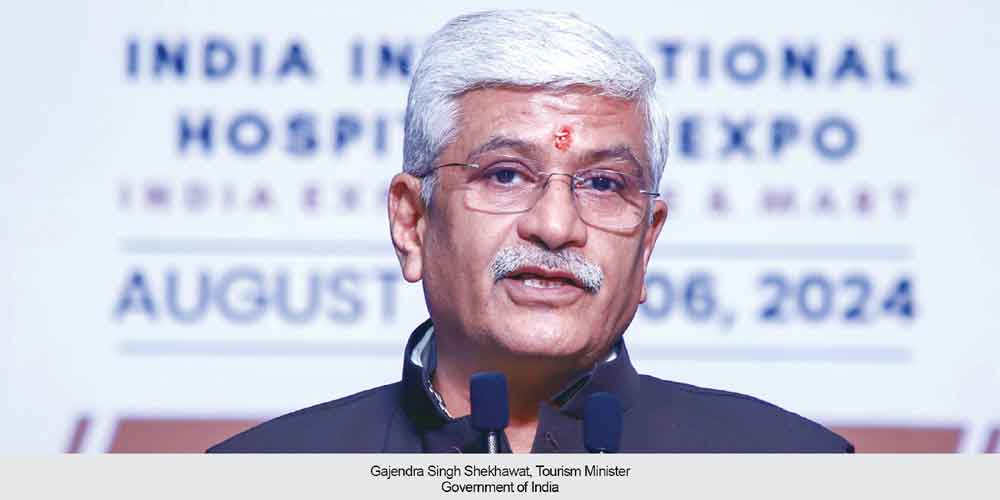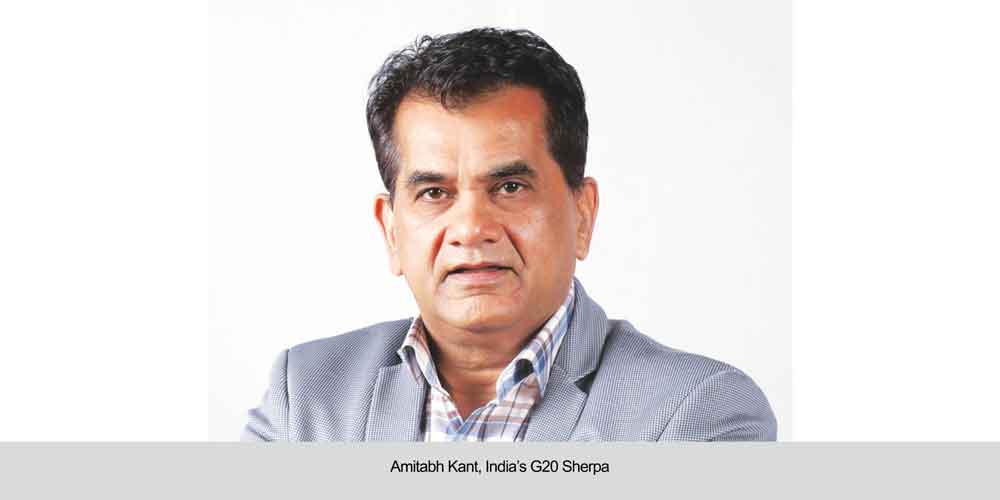In an exclusive interaction with TRAVTALK, Suman Billa, Addl. Secretary, Tourism, Govt of India, shares the key issues raised in the meeting between the new Union Tourism Minister and industry associations.
Nisha Verma
Gajendra Singh Shekhawat, Minister of Tourism and Culture, Government of India, had an all-encompassing meeting with the various tourism and hospitality associations of India, where he addressed the points of concerns and issues plaguing the sector. A total of 27 associations made presentations to the minister and the senior executives of the Union Ministry of Tourism (MOT). Suman Billa, Additional Secretary, Tourism, Government of India, claims that the meeting offered the right platform to kickstart the exchange of ideas between the MOT and the industry.
Takeaway
Billa reveals that the fundamental idea of having the meeting was to listen to the industry. “As we look at the tourism sector in India today, domestic market is rising significantly, foreign tourists are arriving, and outbound is also growing. On the demand side, India is one of the best places to be in the world. The concern that we have today is on the supply side because the infrastructure on the hospitality front is not matching the demand. Hence, the idea was to see what the industry had to say and to understand where the shoe pinches. Also, the idea was to see how to take the tourism sector to the potential that it is capable of fulfilling. The big takeaway was that we need to have a more businesslike approach towards tourism. How do we benchmark where we are today? How do we figure out where India needs to be in 2047? But we need to break that down into a five-year horizon and set a target and then work backwards on how we would arrive at those targets,” claims Billa.
Policy update
One of the major demands of the industry was the National Tourism Policy. “Policy has been drafted and there are several iterations of it. However, two things we need to keep in mind and be clear about is—What do we want to achieve through the policy that cannot be done in normal course by us? Because whatever we can do, we can do even without having the policy. This leads us to the second point—What fundamental transformative idea we want to do through the tourism policy? This means that the entire world view on India tourism will have to get rearranged. Thus, one idea is to see from a business transformation point of view on where we are? What are the targets? And how to go about it? However, we also need to look at what is that single all-encompassing transformative idea that we need to leverage into the new policy,” he says.
Priority agenda
Also, instead of so many issues coming from all directions, it is important to have five or 10-point agenda presented to the government. “Even if it is a five-point agenda, there are many things which are cross-cutting and get covered in that. Thus, we need to stop this mentality of taking a laundry list and trying to cover all the issues under the sun. We should identify what should be our priority. At the end of the day, for the business, as well as for the government, our resources are finite, and our managerial time is also finite. We need to figure out what are the key issues that we need to work on, so that we can deliver results,” he says.
Taxation concerns
All associations demanded ease in taxation, both in terms of GST and TCS. Billa shares, “I think TCS is a fair point on outbound because people who are doing business in India are getting disincentivised and people who travel abroad can make the payment and obviate the entire necessity of paying the tax.”
Way forward
Talking of the next step, he shares, “We must create a common minimum programme between the government and the industry. The time has now passed for us to think individually. We have the right conditions now. We should set a clear target for the next five years and go all out to achieve them.”
 TravTalk India Online Magazine
TravTalk India Online Magazine








